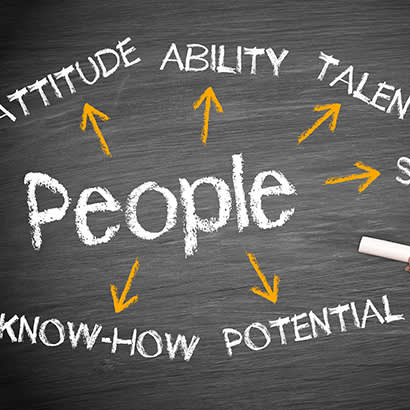
For an enhanced digital experience, read this story in the ezine.
When I was first hired by a local park and recreation department as a camp counselor, I had no idea what direction I wanted my life to go. Over the years, I moved up through the ranks to become a program supervisor of youth care programs. One day, I was headed to my first day of school as a pre-med student, even though my heart wasn’t in it, when it dawned on me that the current job that I had and loved so much could turn into a career.
Later that day, I dropped out of all my medical classes and applied at Miami University, Oxford, where I was accepted a couple of weeks later. I’m now in college double-majoring in sports leadership and management and public administration, with the goal of developing a career in parks and recreation.
Growing up in a lower-middle-class family, there were not a lot of options for affordable fun and games. There were two things I could always count on for fun activities: our local recreation center and parks. As young as I can remember, I’ve had fond memories of taking cooking classes, swimming lessons, basketball — any classes the center offered my mom signed me up for them. And on the days I didn’t have classes or didn’t want to go swimming, we’d go to a park. The recreation center and parks were happy and safe places for me growing up. It is amazing to think that I now work for that exact same department and can help give other families and children the same experiences I had.
How can we implement these experiences on a larger scale? How can we encourage kids, high schoolers and even young adults to pursue careers in parks and recreation? How can we create opportunities similar to mine that inspire the next generation of park and recreation professionals? There are two answers: a simple solution and a complex solution. The simple answer is marketing, not only for programs and events, but also for jobs and career opportunities. If local departments reached out to local job fairs, colleges and high schools, or gave presentations at those schools, that step alone would produce a significant increase in new park and recreation professionals.
The complex answer is that local departments need to work diligently on creating community-enriching events and programs that bring the family and community together while maintaining affordability. We also need to work with “competing” organizations to better the lives of our community members and increase the quality of programs offered. Where there is unity, there is community. As Michelle Obama once said, “Success isn’t about how much money you make. It’s about the difference you make in people’s lives.” Together, we can work to make a better community with enriching programs and safe spaces, and inspire the next generation of park and recreation professionals to pursue a rewarding career that changes lives.
Colton Patak is with the City of Kettering Parks, Recreation and Cultural Arts Department.

